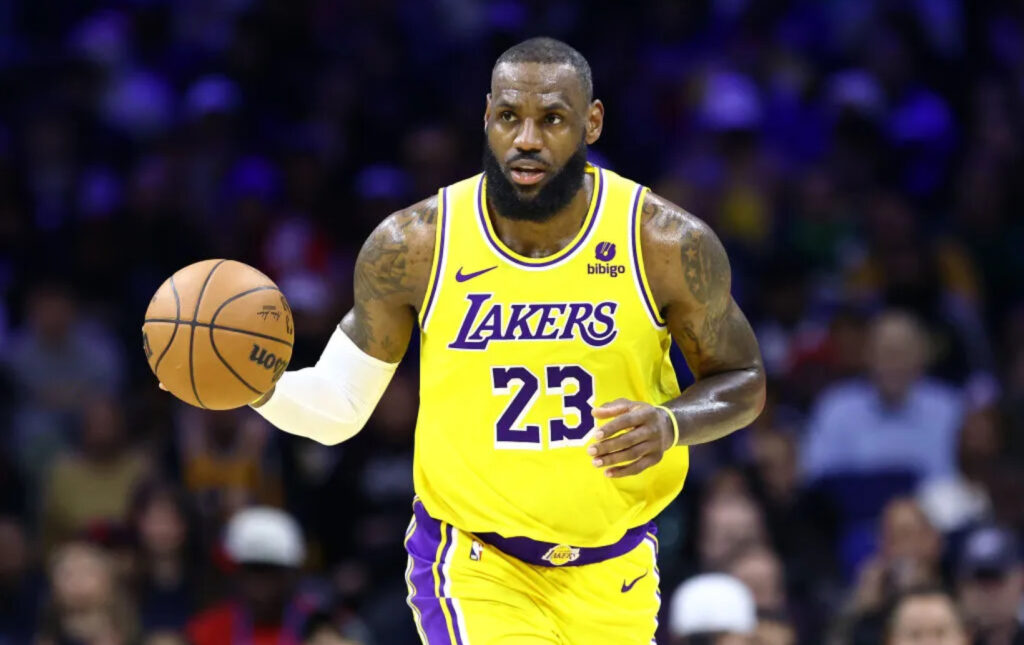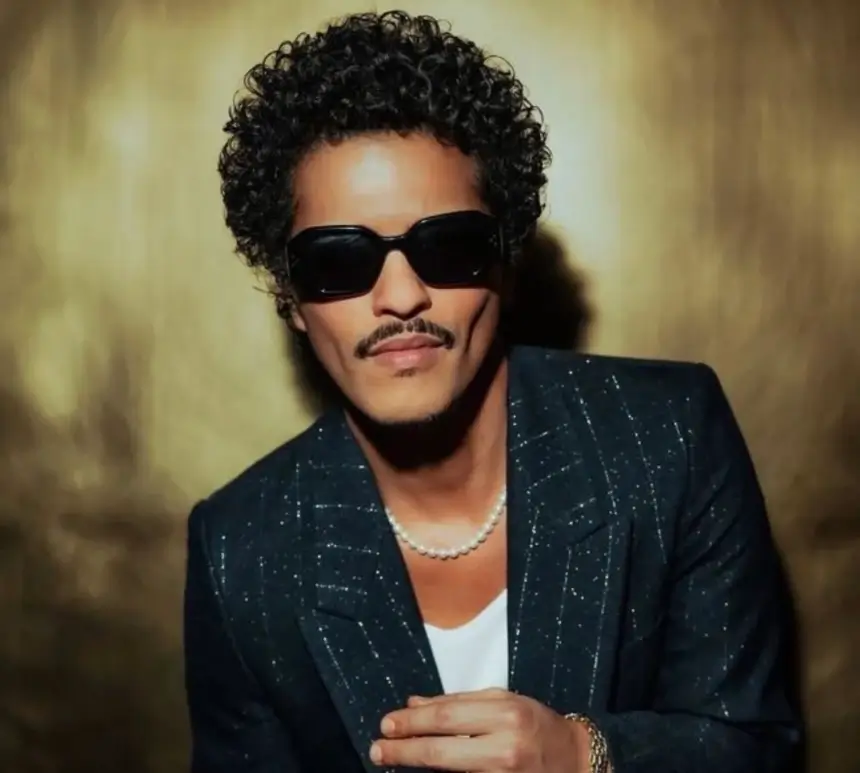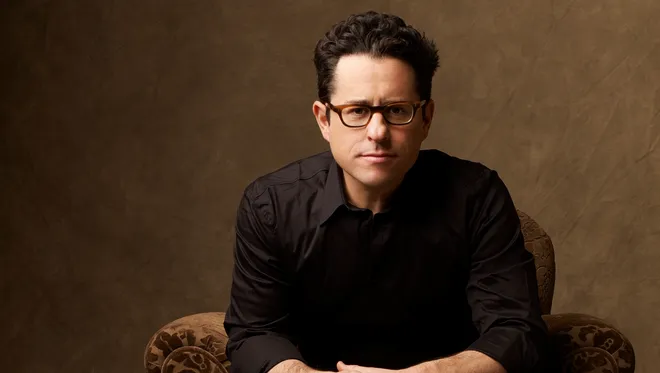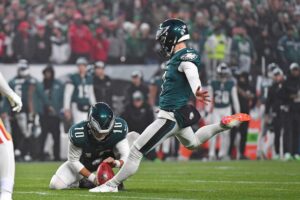The game clock hit zero at Target Center, and the scoreboard glared back: Timberwolves 103, Lakers 96. Another season, another ending. But this one felt different. As LeBron James walked off the court—stoic, deliberate—it wasn’t just another playoff loss. It might have been a farewell, though no one could say for sure—not even him.
“I don’t know,” he said when asked if he would return next season. “Something I’ll sit down with my family, my wife, and my support group, and kind of just talk through it and see what happens.”
And with that single admission—uncertainty from a man whose entire career has been defined by control, direction, and unrelenting forward motion—an era of basketball might have begun to close.
THE ARCHITECT OF AN ERA
LeBron James entered the NBA as a prodigy and stayed long enough to become something rarer: a symbol of continuity in a league built on volatility. Over 22 seasons, he reshaped basketball culture, redefined athlete agency, and extended the arc of what’s possible for a professional body in motion.
He has been the face of three franchises, four championship teams, two decades of All-Star dominance, and a generation’s worth of expectation. But perhaps more than anything, he’s been there—always present, always looming. A constant in a game built on fast breaks and faster narratives.
What happens when that presence begins to dim? Not just for fans or analysts, but for LeBron himself?
WHEN IMMORTALITY MEETS TIME
Athletes don’t retire from greatness. They retreat from pain, from time, from the creeping awareness that their body no longer matches their mind’s ambition. LeBron has fought that truth better than almost anyone in history. His durability—physical and mental—has been as celebrated as his stat lines.
But the human clock ticks beneath even the most gifted skeletons. And now, with 22 seasons behind him, LeBron has earned the right to pause and ask, not what’s next—but whether there needs to be a next.
For two decades, LeBron James has answered every question thrown at him. Could he win in Cleveland? Could he lead in Miami? Could he redeem himself after “The Decision”? Could he bring a title back to his home state? Could he do it in his 30s? In his late 30s? Now, the final question remains: Does he want to keep going?
A DIFFERENT EXIT
There was no fanfare in his voice at that post-game press conference. No performative hint of retirement, no prelude to a farewell tour. Just a statement of reality: he didn’t know.
It’s a striking contrast to the way most legends leave. Kobe’s 60-point finale. Jordan’s “last shot.” Dirk’s goodbye tour. Even Dwyane Wade’s choreographed exit felt mythic. But LeBron, as always, is writing a different script—one driven less by spectacle and more by calculus.
He’s always been methodical, both on and off the court. His brand, his body, his legacy—every piece managed with the precision of a CEO. So if this is the beginning of the end, it will be his end, on his terms. Not dictated by injury. Not forced by public pressure. Just… a decision, made in a quiet room, surrounded by the people who know him best.
That, in itself, is a revolution.
THE NUMBERS SAY STAY. BUT DO THE VOICES?
LeBron’s 22nd season was, statistically, astonishing. At age 39, he averaged over 25 points per game, continued to distribute with the efficiency of a point guard, and logged minutes against players half his age without missing a beat. In short: he can still do it.
But the bigger question is: Does he still want to?
He’s a billionaire. He’s a media mogul. He’s played with his son. He’s chased Kareem and caught him. The list of unachieved goals is short. The cost of continuing—mentally, physically, emotionally—is not.
LeBron has long spoken of “playing until the wheels fall off.” But maybe it’s wiser to park the car before the tires shred. Maybe it’s smarter to leave with miles left in the tank than be dragged off the road.
There is grace in knowing when to stop. That may be the final act of greatness.
A FAMILY MAN IN A SPORT OF INDIVIDUALS
“I’ll sit down with my family,” he said.
That line, simple as it was, reveals a deeper truth about this moment: LeBron has never just been an athlete. He’s been a father, a husband, a son. A public figure who built a life outside of the arena while still dominating within it. And perhaps, for the first time in his career, his next move isn’t about legacy—it’s about life.
His oldest son, Bronny, may declare for the draft. A chance to play alongside him is something LeBron has openly longed for. But with that dream now laced with uncertainty—due to health issues, draft prospects, and logistics—it may not be the sure thing it once felt like.
And if the reality of that dream fades, so might the will to push on. After all, what more is there to prove?
THE PUBLIC, LEFT IN LIMBO
There is something deeply disorienting about the prospect of an NBA without LeBron James. He has been part of the American sports psyche since before Instagram existed. He was a Sports Illustrated cover before smartphones, a No. 1 pick before streaming, a global icon before TikTok.
And now, we’re asked to imagine the league without him—not years from now, but maybe this October.
There will be tributes. There will be debates. There will be endless “Greatest Ever?” segments. But all of that comes after he makes his choice. Until then, the NBA waits—because when LeBron pauses, the entire league seems to hold its breath.
AN AMBIGUOUS FINALE, A PERFECT FIT
If this is the end, it won’t be tidy. There may be no jersey swap, no final buzzer embrace, no last dance. Just a quiet decision, sometime in the offseason. That ambiguity feels fitting. LeBron has always transcended endings.
He reinvented what it meant to be a franchise player. Then he reinvented free agency. Then he reinvented player empowerment. He has been both traditional and radical, beloved and controversial, never static.
So why should his farewell be any different?
The final act may not come on a court, but in a living room. Not in front of cameras, but beside his wife. A choice not made with adrenaline but with clarity.
And if that’s how it ends—subtle, personal, unscripted—then it will be the most LeBron thing of all.
THE GHOSTS OF GREATS PAST
When Jordan retired (the second time), it left a vacuum. When Kobe left, it was poetic. But with LeBron, the loss would feel seismic not because of what he’s done—but because of how much he still can do. There’s no evident decline. Just the looming question of desire.
And maybe that’s the purest legacy: not being pushed out, but choosing to walk away.
He has nothing left to chase. No stat unbroken. No critic unconquered. Only peace to pursue—and maybe, for once, no cameras around to capture it.
IN HIS IMAGE
LeBron’s shadow will not leave with him. The next generation of stars—from Luka to Tatum, from Wembanyama to Giannis—grew up watching him, learning from his blueprint. His impact on the game is structural now. It exists in how contracts are negotiated, how rosters are built, how players take control of their narratives.
LeBron James didn’t just play the game. He rewrote the architecture of how it’s lived.
That blueprint remains. Even if the man who drew it finally puts the pen down.
THE FINAL QUESTION
So we wait. Not for another highlight. Not for another buzzer-beater. But for an answer.
It might come next week. It might not come at all.
But in the stillness after the season’s end, one truth lingers: LeBron James has earned the right to choose silence over spectacle. If this is the last chapter, let it close with dignity, not noise.
Because sometimes the loudest moment in a career full of triumph is the pause.
No comments yet.








